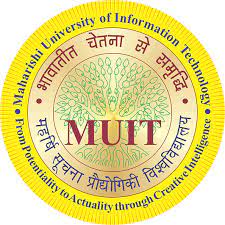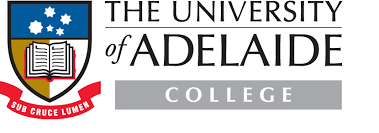TOEFL Exam Syllabus 2024 : Reading, Writing, Listening, & Speaking Section
By Prabhadri SumanUpdated On - 2023-12-26 17-31-31 IST
Help me prepare
100k+ Students Enrolled
Topics Covered:
- TOEFL Exam Syllabus 2024 (Current)
- TOEFL Reading Syllabus
- Types of Questions in TOEFL Reading Section
- TOEFL Listening Syllabus
- Types of Questions in TOEFL Listening Section
- TOEFL Speaking Syllabus
- Types of Questions in TOEFL Speaking Section
- Types of Questions in TOEFL Writing Section
- TOEFL Exam Preparation Tips
- How do I start preparing for TOEFL?
- Preparing for TOEFL Exam Reading Section
- Preparing for TOEFL Exam Writing Section
- Preparing for TOEFL Exam Speaking Section
- Preparing for TOEFL Exam Listening Section
- TOEFL Exam Day Tips
The TOEFL test syllabus consists of four parts - reading, listening, speaking, and writing.ETS has made the syllabus for the TOEFL examination available for both the TOEFL iBT and TOEFL Essential, covering all sections including Reading, Writing, Listening, and Speaking. The total TOEFL score ranges from 0 to 120, encompassing all four sections. TOEFL is widely recognized as a standard English proficiency exam and is accepted by more than 160 countries, including the United States, United Kingdom, Australia, Canada, New Zealand, and others.
The candidate has the option to review the most recent TOEFL examination syllabus to gain a better understanding of the test's structure. Although the TOEFL exam assesses English language proficiency, the types of questions, sections, and overall test format vary depending on the specific test variant. The TOEFL exam syllabus for the iBT test focuses on academic content, while the TOEFL Essential syllabus covers both academic and non-academic subjects.
TOEFL Exam Syllabus 2024 (Current)
The TOEFL syllabus is structured to check the candidates' abilities in reading, writing, listening, and speaking in the university context. The TOEFL assessment and syllabus have been devised to measure the different aptitudes of the candidates and evaluate their familiarity with the English language. Here is a comprehensive TOEFL syllabus that comprises the writing, reading, listening, and speaking components of the test.
Here is a detailed TOEFL syllabus for the benefit of our TOEFL test-takers.
| Section | Number of Questions / Duration | Description |
| Reading | 3–4 passages - 10 questions each | For the TOEFL Reading component, test-takers must read several passages and then answer between 30 and 40 inquiries. |
| 54-72 minutes | ||
| Listening | 3-4 Lectures and 2-3 Conversations - 10 questions each | The TOEFL Listening section necessitates that applicants answer inquiries about concise seminars or class conversations. |
| 41-57 minutes | ||
| Speaking | 4 tasks | The TOEFL Speaking Section necessitates that applicants deliver a speech on a topic they are familiar with, while also mentioning the material they have encountered through reading and listening. |
| 17 minutes | ||
| Writing | 2 tasks | The TOEFL Writing Section demands that participants read a passage, pay attention to an audio recording, and then compose their answers. |
| 50 minutes |
TOEFL Reading Syllabus
In this section, the exam taker will need to read through 3-5 passages and provide answers to 12-14 queries concerning each one. The scores for this segment will be determined by the number answers of correct responses to the reading comprehension questions.
- Question type: 3–4 passages, 10 questions each
- Total no. of questions : About 40
- Total time: 54-72 mins
Types of Questions in TOEFL Reading Section
- Analyzing factual data: The main goals of question formats for factual information are to identify the key concepts, illustrative examples, and definitions. These queries include words like "According to the paragraph," "Paragraph X answers," and "According to the paragraph, which of the following? "Negative factual knowledge questions also include four possible responses, three of which are true; you just need to figure out which one is incorrect. 'NOT' and 'EXCEPT' should come to mind when you respond to these questions.
- Inference and Rhetorical: Inference questions require you to recognize information or comprehend an idea not directly mentioned in the reading passage. You can identify inference questions through words such as 'infer', 'imply', or 'suggest'. Additionally, in rhetorical questions, you need to determine the idea not explicitly stated in the passage. This entails answering questions about the author's purpose in presenting specific information.
- Sentence Simplification: Sentence simplification questions require you to select the sentence that conveys the same meaning as the original sentence in a simpler way. Your task is to choose a sentence that presents the most crucial information straightforwardly.
- Reading Vocabulary: In vocabulary questions, your task is to uncover or deduce the definition of the words and expressions utilized in the passage. These inquiries include phrases such as 'most similar in meaning' or 'the author's intention'.
- Insert Text Question: In the insert text questions, your task is to assess the logical sequence of ideas presented in the passage. Each reading passage in the reading section will include a single insert text question.
TOEFL Listening Syllabus
This section includes both brief conversations and extended conversations. After the short exchange, one question will be presented with multiple potential solutions. You must select one answer. For the lengthier talks, numerous questions will be asked in relation to the discussion.
Question type a:
- 3–4 lectures (3-5 minutes long, about 500-800 words)
- 6 questions each
- About 30 questions in total
Question type b:
- 2–3 conversations (about 3 minutes long, about 12-25 exchanges)
- 5 questions each; About 12 questions in total
Total no. of questions: 40+
Total time: 41–57 mins
Types of Questions in TOEFL Listening Section
- Gist-content and Gist-purpose: Gist-content questions require identifying the primary subject or concept discussed in the listening dialogue or lecture. Gist-purpose questions require you to determine the main objective or intention behind the conversation or lecture.
- Detail Questions : Responding to detailed questions requires recollecting specific information from the lecture. These questions delve into conceptual details rather than trivial ones.
- Function Questions: Function questions challenge you to identify the precise meaning of a statement within a given context, as the meaning can vary depending on the circumstances.
- Attitude Questions: Attitude questions assess your capacity to grasp the speaker's emotions or stance toward a particular subject.
- Organization Questions : Organization questions evaluate your grasp of the lecture's structural framework.
- Connecting Content Questions: In Connecting Content Questions, you must identify the interrelationships among ideas presented in the lecture.
- Inference Questions: Inference questions gauge your comprehension of ideas that are not explicitly articulated in the lecture.
TOEFL Speaking Syllabus
If you want to get the highest marks in the Speaking Section, your responses have to meet the task requirements with only minor errors or shortcomings. The examiners are searching for a conversation that is articulate and consistently maintained. Three main aspects make up the evaluation of this section.
Speaking Questions Covered in TOEFL Syllabus:
a) 1 independent task (prep time: 15 sec; response time: 45 sec)
b) 3 integrated tasks – Listen/Read/Speak (prep time: 30 sec; response time: 60 sec)
Total no. of questions: 4
Total time: 17 mins
Types of Questions in TOEFL Speaking Section
Question 1 - Independent speaking:
Your task is to express your thoughts, viewpoints, and personal encounters. You will be given 15 seconds to prepare your response and 45 seconds to deliver it orally.
Question 2 - Integrated Speaking:
It focuses on situations that occur on campus. In this activity, you can read a passage discussing various topics related to campus life. Additionally, you will listen to a conversation about the same subject matter. Following this, you will be given 30 seconds to prepare your response and 60 seconds to articulate your answer.
Questions 3 & 4 - Integrated Speaking:
The questions will concern the academic programs. You will read a passage based on the academic topic for this exercise. Additionally, a lecture on the same topic will be heard by you. You have 30 seconds to think of a reply and 60 seconds to speak it.
TOEFL Writing Syllabus
Writing a successful essay requires addressing a subject matter in-depth. The composition should be logically and systematically structured, with relevant examples and sufficient justification. Additionally, the writing should be unified, consistent, and coherent. To get a good grade, use a variety of syntax and an appropriate lexicon with minimal grammar mistakes.
Writing Questions Covered in TOEFL Syllabus:
a) 1 integrated task – Listen/Read//Write (20 minutes) (reading time: 3 min; Listening
time: 2 min; writing: 15 min)
b) 1 independent task (30 mins)
Total no. of questions: 2
Total time: 50 mins
Types of Questions in TOEFL Writing Section
Integrated writing task (20 minutes):
You must read a brief essay and a short lecture. And then, depending on what you have read and heard, write your response. There is no maximum word count for your response. However, a 150–225 word response is usually considered effective.
Independent writing task (30 minutes):
You must create an essay based on a question and an issue. Although there is no set limit on essay length, an excellent response usually has at least 300 words.
TOEFL Exam Preparation Tips
When it comes to getting ready for the TOEFL exam, there are two main approaches: self-study and attending coaching classes. Both methods have their own advantages, and neither is superior to the other. If budget is a major concern, opting for self-studies using TOEFL books and resources might be the more suitable choice. On the other hand, if you require expert guidance to gain an edge in your TOEFL preparation, enrolling in a coaching center would be a better option. Ultimately, it depends on your individual needs and preferences when deciding how best to prepare for this important exam.
The TOEFL Test evaluates the proficiency of candidates in comprehending English at a university level. It assesses their skills in four key areas: reading, writing, listening, and speaking. To effectively prepare for the test, it is essential for candidates to familiarize themselves with its format, scoring system, and results. ETS, the organization responsible for conducting the TOEFL exam, offers both free and paid study resources that are readily accessible to all. These materials serve as valuable aids during preparation and can greatly enhance one's chances of achieving success in the test.
How do I start preparing for TOEFL?
There are two options available to students who are preparing for the TOEFL exam: they can choose to study independently or seek guidance from a TOEFL coaching center. It is important for students to determine the right time to start their preparation. Additionally, those interested in joining coaching should be well-informed about the best TOEFL coaching centers in India.
Preparing for TOEFL Exam Reading Section
1. Candidates should read as much as possible in English. The main goal behind this activity is to keep the student's attention engaged with the English language at all times.
2. Converting short paragraphs into a question and answer format is a well-known method for fully grasping the meaning of a text. It's an effective technique to enhance your reading skills.
3. Newspapers, articles, and magazines in English are excellent resources for learning new terms.
4. Using articles and literary pieces to assess your work can also function as a valuable tool in determining your level of achievement.
5. Candidates should actively practice expanding their vocabulary. as this will help them flourish in their TOEFL Reading Section.
Preparing for TOEFL Exam Writing Section
1. In order to fully understand the recordings, candidates are required to attentively listen to short passages or readings and then write a summary of what they have heard.
2. Words that connect are vital as they show how sentences and paragraphs relate to each other, and also join multiple short sentences into a single longer statement.
3. While listening to recordings, candidates have the opportunity to recognize and analyze the writer's opinions, allowing them to delve deeply into their analysis and write about them extensively.
4. In order to fully comprehend the writer's viewpoint, the reader should carefully consider any potential counterarguments and articulate them using their own language.
Preparing for TOEFL Exam Speaking Section
1. As a self-exercise, candidates have the option to gather pictures from magazines and newspapers and then verbally depict them in less than a minute. To make this task more demanding, candidates can choose to describe the same subject multiple times, incorporating different adjectives and additional details.
2. To make their opinions clear and understandable, candidates should make use of linking words or phrases during this practice session.
3. Students have the option to evaluate their TOEFL iBT Speaking Skills by considering activities that relate to student life and providing reasons to support their preferences. They can then speak about their chosen activity for a minute.
4. Candidates can also develop the routine of reading newspapers and online articles, engaging in discussions about current events with their friends.
Preparing for TOEFL Exam Listening Section
1. It is important for candidates to understand that one of the most valued skills in the TOEFL Listening exam is the ability to quickly and accurately take notes.
2. In order to extract relevant information and use it to respond to questions, it is essential for the candidate to first develop the habit of listening to lengthy audios.
3. Knowing the genre of the speech gives you a significant advantage. Many inquiries will often arise regarding the nature of the conversation.
TOEFL Exam Day Tips
If you're preparing for the TOEFL exam, here are some valuable tips to help you excel on your big day. When the test day finally arrives, don't forget to bring your valid and acceptable ID to the test center. For Indian test-takers, a valid passport is mandatory and no other form of identification will be accepted. It's important to note that your passport must be up-to-date and in good standing in order to comply with this policy.
1. An original document (photocopies not allowed)
2. Carry Valid documents
3. Have your full name mentioned in it as mentioned during registration
4. Have your photo in it (a recent photo matching the test takers)
5. Have your signature
6. Before starting the Reading section, take a minute or two to compose yourself.
7. Make sure to dress in comfortable and warm clothes for your computer test, as most test centers are air-conditioned. It's important to avoid having cold feet (both literally and figuratively) on the day of the test.
Helpful Calculators:
If you can dream it
we can help you
achieve it!
Connect with our admissions's experts today!
Latest Blog Posts
Trending Posts

Exam
2023-03-20 13:47:54
10741 Views
TOEFL FAQ's
Popular Colleges to Study Abroad
Other Study Abroad Exam
Popular Universities to Study Abroad
- University of Waterloo
Waterloo
- University Canada West
Vancouver
- University of Windsor
Windsor
- Cape Breton University
Sydney
- Dalhusie University
Halifax
- Carleton University
Ottawa
- University of Ottawa
Ottawa
- University of Guelph
Guelph
- Explore more colleges in Canada
- University of New Haven
West Haven
- Kent State University
Kent
- Wright State University
Dayon
- San Jose State University
West Haven
- Clark University
Worcester
- Rowan University
Glassboro
- Golden Gate University
San Francisco
- Arkansas
San Francisco
- Explore more colleges in USA
- Coventry University
Coventry
- University of Birminghame
Birminghame
- De Montfort University
Leicester
- Cardiff University
Cardiff
- BPP University
London
- University of West London
London
- University of Nottingham
Nottingham
- University of Warwick
Coventry
- Explore more colleges in UK
- Auckland Institute Of Studies
Auckland
- Massey University - Auckland Campus
Albany
- Eastern Institute of Technology - Auckland Campus
Auckland
- NorthTec - Auckland Campus
Auckland
- Massey University - Manawatu Campus
Palmerston North
- University of West London
London
- Wellington Institute of Technology (WelTec) - Petone Campus
Lower Hutt
- Otago Polytechnic - Dunedin Campus
Dunedin
- Explore more colleges in New Zealand
- Chandigarh University
Mohali
- Parul University
Vadodara
- Sharda University
Greater Noida
- Jain University
Bangalore
- Bennett University
Greater Noida
- Lovely Professional University
Phagwara
- Chitkara University
Rajpura
- Brainware University
Kolkata
- Explore more colleges in India
- Abu Dhabi University
Abu Dhabi
- Gulf Medical University
Ajman
- New York University
Abu Dhabi
- Emirates Aviation University
Dubai
- Higher Colleges of Technology
Dubai
- British University in Dubai
Dubai
- Al Ghurair University
Dubai
- American University in the Emirates
Dubai
- Rochester Institute Of Technology Dubai
Dubai
- Emirates Academy of Hospitality Management
Dubai
- American University of Ras Al Khaimah
Ras Al Khaimah
- Explore more colleges in UAE
- Ras Al Khaimah Medical and Health Sciences University
Ras Al Khaimah
Search, Shortlist, Apply and get accepted! It’s that Simple to pursue your dream to Study abroad with Edmissions. Our team of experts provide you the right guidance that helps you to take admission in your dream college in countries like Canada, the USA, the UK
© 2021-2024 Edmissions - All rights reserved.
TALK TO OUR EXPERTS










